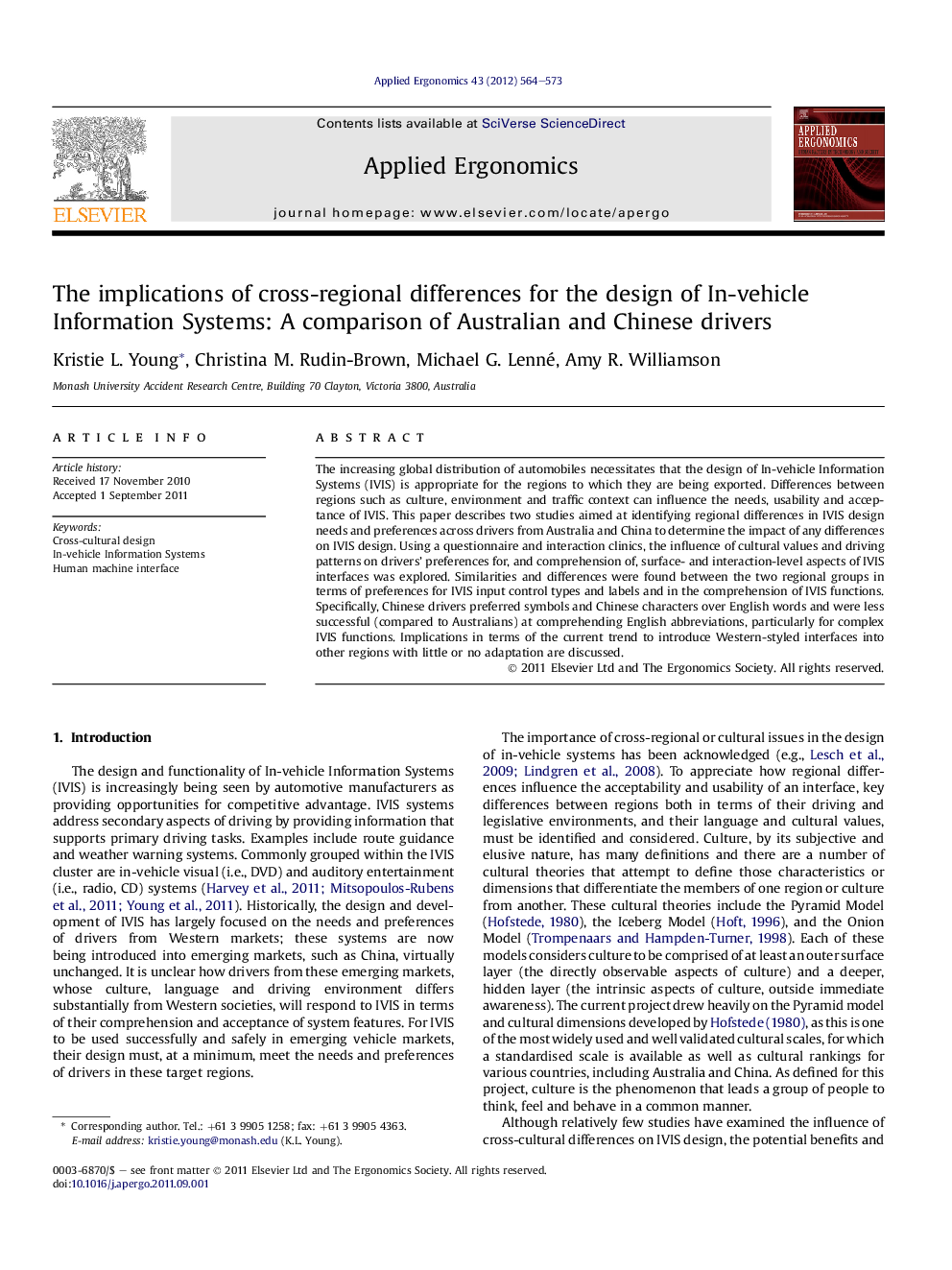| Article ID | Journal | Published Year | Pages | File Type |
|---|---|---|---|---|
| 548745 | Applied Ergonomics | 2012 | 10 Pages |
The increasing global distribution of automobiles necessitates that the design of In-vehicle Information Systems (IVIS) is appropriate for the regions to which they are being exported. Differences between regions such as culture, environment and traffic context can influence the needs, usability and acceptance of IVIS. This paper describes two studies aimed at identifying regional differences in IVIS design needs and preferences across drivers from Australia and China to determine the impact of any differences on IVIS design. Using a questionnaire and interaction clinics, the influence of cultural values and driving patterns on drivers' preferences for, and comprehension of, surface- and interaction-level aspects of IVIS interfaces was explored. Similarities and differences were found between the two regional groups in terms of preferences for IVIS input control types and labels and in the comprehension of IVIS functions. Specifically, Chinese drivers preferred symbols and Chinese characters over English words and were less successful (compared to Australians) at comprehending English abbreviations, particularly for complex IVIS functions. Implications in terms of the current trend to introduce Western-styled interfaces into other regions with little or no adaptation are discussed.
► Differences existed across the two regions in IVIS preferences and comprehension. ► Chinese drivers preferred symbols and Chinese characters over English words. ► Chinese drivers were less successful at comprehending complex English abbreviations. ► Introducing Western IVIS into China with limited adaptation is problematic.
